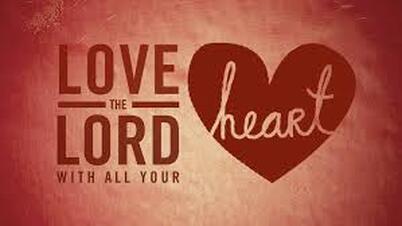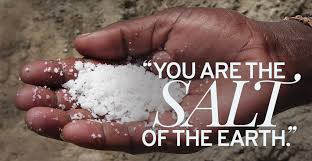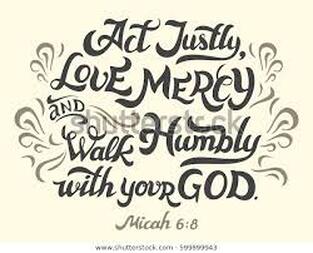
Deuteronomy 30:15-20 Matthew 5:33-37
Who here survived Valentine's day, two days ago? Over 18 billion dollars spent on greeting cards, candy and flowers, not to mention nights out on the town. All this to demonstrate love both for partners and also for family and friends. Are you among the ones that feel all loved and cared for? If you received nothing and left you blue, you must remember you are loved too. I hope you treated yourself to something special.
While some of us enjoyed the cards, chocolates, flowers and special dinners, it’s important to take in account the religious roots of the holiday. Our St. Valentine shows us different dimensions of love. A love that is our source of life and transcends ordinary giving and invites us into a love we are called to live day in and day out. An absolute love. A deep love. Yes, a hard love, While our lessons to not mention love, love is the cornerstone of what Moses speaks during his final speech to the Israelites. Love is the cornerstone of what Jesus speaks off when he speaks of a law higher than the law that we must obey to be his followers. This is what choosing life means, loving even when it is hard. Even when we don’t get back a box of chocolates or a card.
Love is the key factor in making us feel alive and making the right choice between life and death. Few of us are called to martyrdom. But we are called to love sacrificially, and that kind of loving leads to life, life at its fullest.
Deuteronomy records some of Moses’ last words before he died. The Israelites had been wandering in the wilderness for 40 years and were looking forward to entering the Promised Land. Moses knew he wouldn’t be able to go with them, so he delivered these words from God, “Choose life so that you and your descendants may live…”
According to Deuteronomy, there are definite ways to choose life. We choose life by loving the Lord our God, walking in God’s ways, and observing God’s commandments (vs. 16) contained in Exodus, Leviticus Deuteronomy. Three books about loving, walking, observing, obeying. It’s about choosing the “yes” to God. It’s about being connected to God and God’s creation, being aware and connected to our true selves, and being aware and connected to other human beings. It’s about practicing our faith, and walking mindfully through life, in harmony with God’s ways.
We heard a segment of the Sermon on the Mount from Jesus this morning “Let your word be ‘yes,’ or ‘no:’ anything more than that comes from the evil one.” In that passage Jesus was really talking about making oaths. According to Jewish law, an oath was binding, depending on how closely it was associated with the name of God. So, for example, if you say, “I swear to God,” people should take it more seriously than if you simply said, “I swear it’s true.” But Jesus said, skip the oath-taking altogether and just tell the truth. Act truthfully. Be willing to say a simple yes or no and mean what you say.
Love is the needed foundation for the hard sayings we heard today. And if you ever need an argument against taking the Bible literally, you can use today’s scripture. Even Biblical literalists don’t take that one literally plucking out the right eye, cutting off the right hand. Imagine, the streets would be full of mangled faces and hacked off limbs. And when we went to church the congregation would look like the cast of a horror movie. Jesus did not mean for people to actually pluck out their eyes or chop off their hands. So, what did he mean?
Some people say that Jesus was taking the law to an extreme, to show us how far we are from fulfilling it, and to make us realize our need for God’s grace. Only through faith in God’s grace can we be saved. But I think Jesus said these things because he wanted us to understand and fulfill the purpose and spirit of the law. Jesus wants us to choose life. Jesus speaks in hyperbole, a common Semitic trait to get a point across. Even last week we heard Jesus say, “Do not think that I have come to abolish the law or the prophets; I have come not to abolish but to fulfill… For I tell you, unless you are (more righteous) than the scribes and Pharisees, you will never enter the Kingdom of Heaven.” (v. 17, 20). According to Jesus, God’s law goes beyond simply behaving well. It is more than a Valentine card. The purpose of the law is to guide us into the ways of God. And that involves more than behavior. It involves what’s in our hearts. At its root it’s about life that embraces the fullness of love.
So, Jesus gives some examples. The law says, “You shall not murder.” But if you are angry with someone and you insult them, aren’t you murdering them in spirit, shutting them out, and writing them off as worthless? The law teaches us not to kill. But the Kingdom of God is more than simply avoiding murder or physical harm to others. It’s about treating them with dignity and respect.
The law also says, “You shall not commit adultery.” That was based on the idea that you shouldn’t steal something that belonged to another man. But Jesus asks more of us. When you lust after someone, you are looking at them as an object to be taken and used for your own pleasure or desire. Jesus asks us to honor people as real human beings with their own feelings and needs and honor their commitments as well as our own.
Divorce is another example. Writing a certificate was legal, but it still allowed men to divorce their wives for frivolous reasons. Back in Jesus’ day a divorce could ruin a woman’s life because women had no way to support themselves. Women were the property of men, dependent on them, and it was hard for a divorced woman to re-marry. So, Jesus says, consider the needs of women, and honor your commitments to care for them.
Again, according to the law, a person’s oath or vow was binding depending on how closely it was associated with the name of God. Jesus said, skip the oath-taking and just tell the truth. If you say “yes,” mean yes. If you say “no,” mean no. It’s about whether or not people can trust you. Be trustworthy.
Jesus took the law to a new level, beyond mere rules and rituals, to relationships, our relationship with ourselves, with each other, and with God. Jesus is also talking about choosing life as the fullest expression of love. Even a tough love. Absolute love. If you have integrity in yourself, honor and respect God and your neighbor, then you will naturally fulfill the law of Christ. It means we shall choose life and love to the fullest. Let us choose love, and fully live. Amen


 RSS Feed
RSS Feed